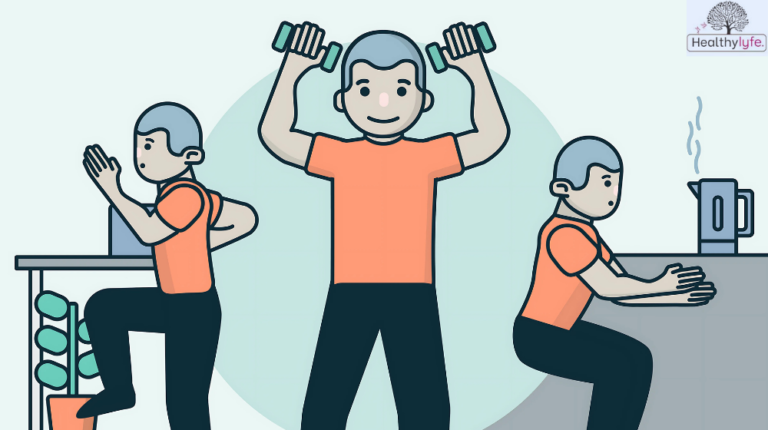Can I Workout Every Day Advantages, Disadvantages, and Benefits
Can daily workouts boost your health? Learn the advantages, risks, and how to safely exercise every day for better fitness, weight loss, and mental well-being.
When it comes to fitness, one of the most common questions people ask is, “Can I workout every day?” Whether you’re trying to lose weight, build muscle, or just feel better in your body, the idea of exercising every day can be tempting. After all, the more you work out, the faster you’ll achieve your goals, right? Well, not necessarily.
In this article, we’ll explore the advantages and disadvantages of working out every day, the benefits of daily exercise, and whether it’s truly possible (and safe) to make daily workouts a sustainable part of your routine.
What Does It Mean to Workout Every Day?
When people talk about working out every day, they don’t always mean intense, high-energy training sessions back-to-back. Rather, it refers to engaging in some form of physical activity each day, whether that’s a high-intensity workout, a light walk, or stretching. The idea is to move your body in a way that promotes health, strength, and overall well-being.
Daily exercise doesn’t have to mean running a marathon or lifting heavy weights every single day. It can mean alternating between different types of activities, from cardio to strength training, yoga, and stretching. The goal is to stay active and consistent, without overloading the body on any single day.
The Importance of Rest and Recovery [1]
Rest isn’t just for the lazy. It’s a critical component of any workout plan. Why? Because exercise, especially strength training, causes microscopic tears in your muscle fibers. Your body needs time to repair and rebuild these fibers, making them stronger. This process happens during recovery—when you rest. Without sufficient recovery, your muscles won’t have the chance to rebuild, which can lead to fatigue, reduced performance, and injury.
Rest days are essential, not just for muscle recovery but for your overall mental and physical health. In fact, for many athletes, recovery days are just as important as training days. So, while it’s tempting to think that working out every day will speed up your progress, skipping rest days can hinder your results in the long run.
How Much Exercise is Too Much?
How much exercise is too much? This is one of the most important questions to ask when considering daily workouts. The right amount of exercise varies from person to person, depending on factors like age, fitness level, and specific goals.
Generally, if you’re constantly feeling tired, experiencing persistent soreness, or finding it hard to improve your performance, you might be overtraining. Too much exercise without proper recovery can lead to overtraining syndrome (OTS), which can significantly hinder progress and increase the risk of injury.
In short, more isn’t always better. You need a balance of intense training and adequate rest.
Advantages of Working Out Every Day
| Advantage | Description |
|---|---|
| Improved Cardiovascular Health | Regular daily exercise strengthens the heart, improves blood circulation, and reduces the risk of cardiovascular diseases, such as heart disease and stroke. |
| Stronger Muscles and Bones | Daily strength training and resistance exercises help build muscle mass and increase bone density, lowering the risk of osteoporosis and improving overall strength. |
| Mental Health Boost | Physical activity triggers the release of endorphins, which are natural mood lifters, reducing stress, anxiety, and symptoms of depression. |
| Better Weight Management | Daily exercise helps regulate metabolism, burn calories, and improve fat-burning efficiency, making it easier to manage body weight and achieve fat loss. |
| Increased Energy Levels | Consistent physical activity boosts energy levels, improving stamina and making everyday tasks feel less exhausting. |
| Enhanced Flexibility and Mobility | Stretching and yoga incorporated into daily workouts can improve flexibility, reduce stiffness, and enhance joint mobility, promoting better overall movement and posture. |
| Improved Sleep Quality | Regular exercise helps improve sleep quality, promoting deeper, more restful sleep and helping with insomnia or sleep disturbances. |
| Boosted Immune System | Moderate daily exercise helps strengthen the immune system, making the body more resistant to illnesses like the common cold. |
| Increased Discipline and Consistency | Exercising every day creates a sense of routine and discipline, promoting consistency in your fitness goals and creating long-term habits. |
| Improved Focus and Productivity | Regular physical activity has been linked to improved cognitive function, focus, and productivity, helping you perform better in work and daily life activities. |

Disadvantages of Working Out Every Day
While daily exercise can be extremely beneficial, it’s not without its potential downsides. Let’s explore the risks and drawbacks of committing to a daily workout routine.
Risk of Overtraining Syndrome
Overtraining occurs when your body doesn’t get enough rest between workouts, leading to fatigue, decreased performance, and an increased risk of injury. Overtraining syndrome (OTS) is a serious condition that can cause a range of symptoms, including persistent soreness, sleep disturbances, irritability, and fatigue. If you’re not allowing adequate recovery time, your body’s ability to perform at its peak diminishes. And in the long run, overtraining can lead to burnout.
Increased Injury Risk
One of the most obvious risks of working out every day is injury. When you exercise every day, especially if you’re pushing your body hard, you increase the likelihood of strain and stress on your muscles, joints, and ligaments. Overuse injuries like tendonitis, stress fractures, and muscle strains are common among those who don’t allow their bodies time to rest.
To mitigate injury risk, it’s crucial to vary your workouts, focus on proper form, and listen to your body’s signals.
Mental Fatigue and Burnout
While physical fatigue is an obvious concern with daily workouts, mental fatigue can be just as damaging. If exercise becomes a chore, rather than something you enjoy, it can lead to burnout. Exercise should be something that energizes you and helps you feel better—not a task you dread every day. When working out every day, it’s important to avoid pushing yourself too hard, too fast.
Impact on Social Life and Other Responsibilities
Spending hours each day at the gym or engaging in intense workouts can take a toll on your social life, work responsibilities, and other personal commitments. A rigid, daily workout schedule may leave little time for socializing with friends and family or pursuing other hobbies. The key to maintaining a balanced life is to ensure that your workout routine doesn’t overshadow other important areas of your life.
How to Safely Workout Every Day
If you’re set on working out every day, there are ways to do it safely. Here are a few strategies to ensure that your daily routine doesn’t lead to burnout or injury.
The Importance of Variety in Your Routine
Variety is essential when exercising every day. If you do the same type of workout every day, you risk overuse injuries and mental burnout. Mix up your routine to keep things interesting and give your body a break from high-impact or intense exercises. For example, alternate between cardio, strength training, flexibility exercises, and rest or active recovery days. This keeps your body challenged, but also allows different muscle groups to recover.
Listen to Your Body: Recognizing When You Need a Rest
Your body is your best guide. If you’re feeling tired, sore, or experiencing pain, it’s a sign that your body might need a rest day. Pay attention to signals like fatigue, irritability, and decreased performance—these can all indicate that you’re pushing yourself too hard. Don’t be afraid to take a day off if you need it, even if it means breaking your daily workout streak.
The Role of Nutrition in Supporting Daily Workouts
To fuel your daily workouts, you need to make sure you’re eating enough to support your increased activity level. Your body needs protein to repair muscles, carbohydrates for energy, and fats for long-term energy storage. Make sure you’re eating a balanced diet that provides adequate nutrition to support recovery and performance. Staying hydrated is just as important, so drink plenty of water throughout the day.
Setting Realistic Goals for Daily Workouts
While daily workouts are a great way to stay consistent, it’s important to set realistic and achievable goals. Overextending yourself can lead to burnout, so break down your goals into smaller, manageable targets. This will help keep you motivated and prevent disappointment.
Examples of Safe Daily Workout Routines
If you’re new to daily workouts, here are a few examples of balanced routines that you can follow:
- Monday – Cardio (30 minutes of running, cycling, or brisk walking)
- Tuesday – Strength Training (Full-body workout)
- Wednesday – Yoga or Stretching (Active recovery day)
- Thursday – Cardio (HIIT or swimming)
- Friday – Strength Training (Focus on different muscle groups)
- Saturday – Low-Intensity Activity (Walk or light yoga)
- Sunday – Rest or Active Recovery
Conclusion
So, can you workout every day? The short answer is yes, but with some important considerations. While daily exercise offers numerous benefits, it’s crucial to listen to your body, incorporate rest, and vary your workouts. Working out every day can enhance cardiovascular health, improve muscle strength, and boost mental well-being, but it’s not without its risks. As long as you take the proper precautions—like rest, recovery, and balanced routines—you can enjoy the benefits of a consistent fitness plan without pushing yourself to the point of burnout or injury.
FAQs
Can I workout every day if I’m a beginner?
Yes, but start slow. Incorporate low-impact exercises and gradually increase the intensity as your body adapts.
How many rest days should I take in a week?
Ideally, you should have at least one full rest day or active recovery day per week. Listen to your body to determine if more rest is needed.
Is it okay to do cardio every day?
Yes, but vary the intensity and duration. Mix in low-impact options like walking or swimming to avoid overuse injuries.
Can daily workouts cause weight gain?
If you’re eating too much without balancing your calorie intake, you could gain weight. Exercise alone isn’t enough for weight loss or maintenance—it must be paired with a balanced diet.
How do I avoid overtraining when working out every day?
Mix up your workouts, incorporate rest or low-intensity days, and listen to your body’s signals to prevent overtraining.
By healthylyfe


